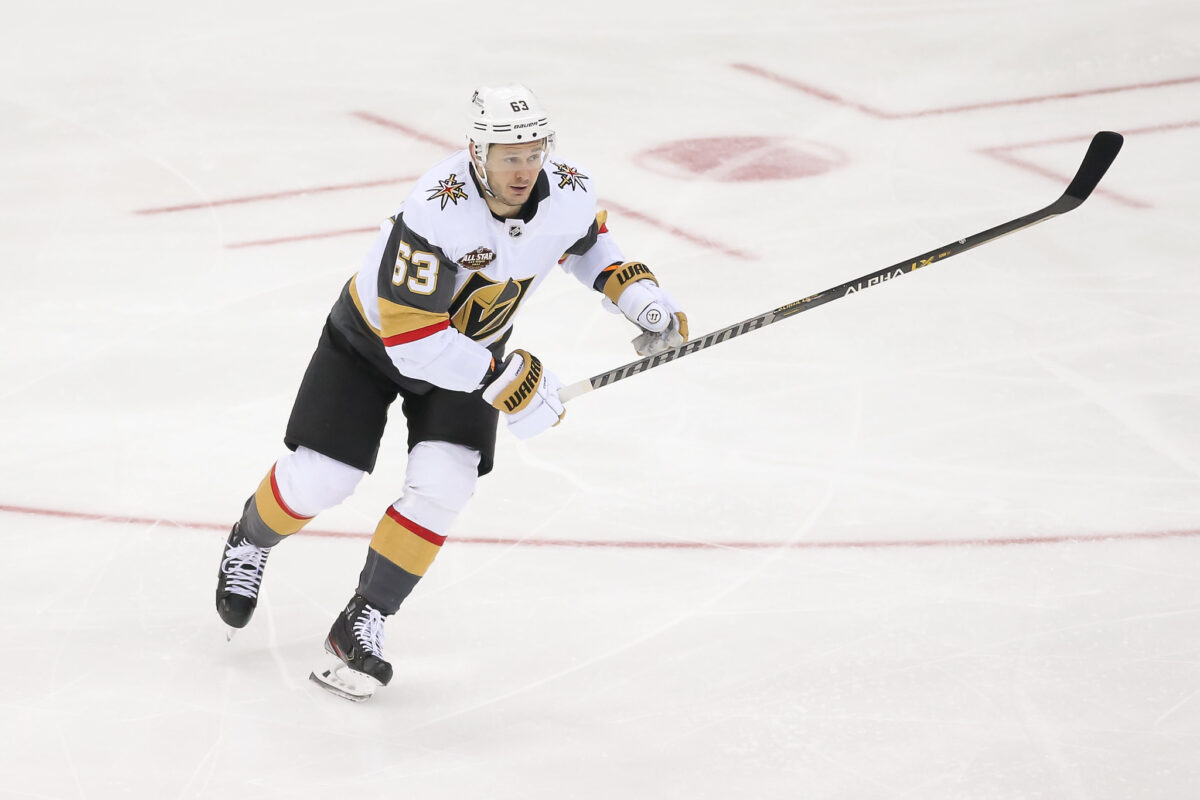The Montreal Canadiens have surpassed expectations so far this season, thanks in large part to the inspirational coaching of Martin St. Louis but also because of the excellent play of the rookies, led by the young core of Nick Suzuki and Cole Caufield. Several veteran players haven’t been able to keep up with the speed or production of the team’s youthful core, but that hasn’t stopped the team from trying to get the veterans to produce by providing them with opportunities in all situations in the hopes that they can find their games. One veteran whose level of play has been inconsistent so far this season has been Josh Anderson. This seems to have caused some frustration to boil over as he hit Vegas Golden Knights defenseman Alex Pietrangelo from behind, leading to a two-game suspension.
This allows the Canadiens to give more responsibility and ice time to younger players such as Juraj Slafkovsky, who had reached his nine-game limit in that same game versus Vegas. This means that the first year of his entry-level contract (ELC) will be burned off and points to the likelihood that the 2022 first-overall pick remaining with the Habs for the rest of the season.
Canadiens’ Super-Sized Rookie
In his first nine games, Slafkovsky has steadily improved as he has become more accustomed to not only the speed of the NHL game but also the size of the North American rinks. Having spent his entire career up until this season playing on Olympic-sized rinks, the added skill — coupled with the smaller surfaces — has led to some growing pains. With that said, the rookie has scored three goals in those nine games, which, prorated over a full 82-game season, would place him on pace for a 27-goal season.
Related: Canadiens Need to Trade Excess Forward
Slafkovsky has only averaged 11:06 mins per game in ice time in those nine games, the majority of which has come at five-on-five. In that time, he has been isolated to the bottom-six of the lineup, where he has had to battle for offensive opportunities, as he has only started a shift on the offensive side of the red line only 47 percent of the time. Entering his 10th game of the season, even with Anderson out, it doesn’t seem that will change.
Another “issue,” if anyone wants to call it that as he is being eased into the league, is his lack of usage on the power play (PP). Of the 96 total minutes he has played in the NHL, only 2:43 of that has been on the PP, which led to one of his three goals.
Canadiens With No Anderson? No Problem
With the return of Evgeny Dadonov from injured reserve, it left general manager (GM) Kent Hughes with a difficult decision. Does he make the easy move of sending Slafkovsky to the minors as he doesn’t have to clear waivers, or does he send someone else down, risking losing an asset on the waiver wire?

Well, he chose to waive Rem Pitlick in the hopes that his two-year deal paying him $1.1 million per season and his zero points in seven games would be a deterrent against losing a player that had been a positive asset last season. It was a gamble, but it did pay off, with Pitlick clearing waivers and adding a talented veteran to an American Hockey League (AHL) roster in desperate need of some added offense.
Clearing Pitlick via waivers will add his $1.1 million to the Canadiens’ cap space and lessen the gridlock of forwards on the roster. Added to that, the fact that Anderson is now out on a suspension, the door is open to more five-on-five time for a big winger such as Slafkovsky. Unfortunately, it doesn’t instantly mean more PP time becoming available, as Anderson was not used at the man advantage very much. However, it does seem that this lack of PP time will change for the mountain-sized rookie moving forward, as he has been practicing with the top unit.
It does seem that Dadonov, and not any of the youth, is the immediate beneficiary of Anderson’s suspension, as the Russian forward slots into the top-six. Yet, without a proven power forward in the lineup to face their division rivals, the Detroit Red Wings and a team in the Vancouver Canucks, who are desperate for wins, there is an opening for more ice time, even in a sheltered role, for Slafkovsky, the heir apparent power forward.
While it is important for the Habs to ease him into his development opportunities, they will need to provide him with more than his minimal opportunities thus far. While playing past the nine-game mark ends any chances of allowing an ELC slide, the crucial number for management is 40. As in, 40 games played this season will mean he will be accredited with an accrued season towards his unrestricted free agency (UFA) eligibility. That is when a player turns 27 years old or has played seven seasons. That has an impact on future salary cap decisions that Hughes will need to balance with the player’s development.
Anderson’s suspension provides an easy opportunity to allow Slafkovsky additional ice time in a more significant role, playing against more skilled opponents. This could help in his development but also in taking a step to ensure that burning the first year of his contract was not wasted.